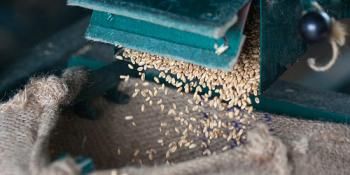Breaking the link between commodity agriculture and deforestation
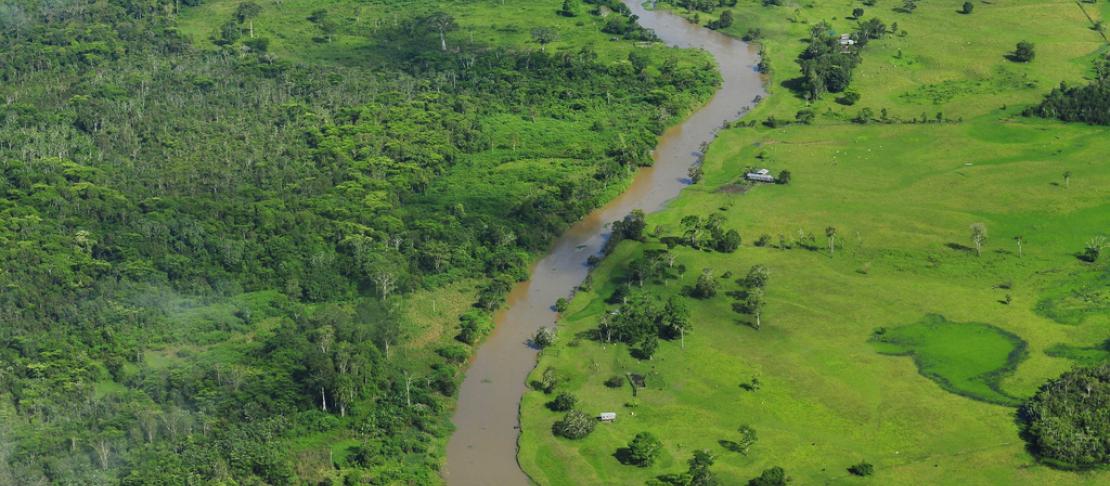
This Technical and Networking Session will be live-streamed to a global audience. Tune in on the day:
Where Global Landscapes Forum site
When 16 November, 14:00-16:00 CET [convert time]
Deforestation, greenhouse gas emissions and commodity agriculture seem to go hand in hand in the tropics. Production of beef, soybean, cocoa, palm oil and other commodities is increasing rapidly in response to growing global demand. But much of the increase comes at the expense of forests.
In Brazil, for example, over half of the country’s carbon emissions are generated by conversion of Amazonian forest to pasture, according to the Ministry of Science and Technology; cattle ranching may be responsible for three-quarters of forest clearance.
This cannot continue. We urgently need to find ways to encourage farmers to adopt environmentally sustainable practices that reduce agriculture’s contribution to deforestation and climate change. And indeed there are many programmes around the world trying to do just this, with governments, non-governmental organizations, communities and companies all developing institutions and policies, incentives, and information and technology aimed at influencing where and how these commodities are produced.
“But one of the big problems is that there has been little research that shows what works where, when and why,” said Dr Peter Newton, a researcher working with the CGIAR Research Program on Climate Change, Agriculture and Food Security (CCAFS) Low-Emissions Agriculture theme. “We need comparative studies across commodities, cases and countries.
For example, the Roundtable on Sustainable Palm Oil and the Sustainable Agriculture Network (SAN) Standard for Sustainable Cattle Production Systems employ similar mechanisms and approaches to reducing the impact of their chosen commodity on the environment, but one is driven by industry participants while the other is led by a civil-society consortium. What are the relative benefits and drawbacks of each approach?
Looking to answer some of these questions, CCAFS, International Forestry Resources and Institutions (IFRI) research network, University of Michigan and The Forests Dialogue are co-convening a Technical and Networking Session at the Global Landscapes Forum.
The session Managing landscapes for food, fuel, fiber and forests: innovative approaches in a time of food insecurity and climate change will look at case studies of programmes working to enhance agricultural sustainability and reduce deforestation, and draw out the lessons we can learn from them. Panelists will include lessons learned at The Forests Dialogue’s ‘Field Dialogue on 4Fs - food, fuel, fibre and forests - in Brazil’, held in November 2012.
One of the CCAFS case studies that will be presented is the implementation in Brazil of the SAN Standard for Sustainable Cattle Production Systems. This voluntary certification programme aims to improve environmental sustainability in cattle production, with a specific focus on reducing deforestation.
Learn more: Examining the new sustainable beef production certification in Brazil
The SAN certification standard is tough, and more rigorous than any existing law or incentive program in Brazil: 15 categories of standards cover issues such as management systems, ecosystem conservation, water conservation and animal welfare. It covers the whole supply chain, from the birth of an animal to the processing of the meat and leather. Certified products carrying the Rainforest Alliance label are sold by retailers.
A recently released report on the sustainable Agriculture Network (SAN) certification 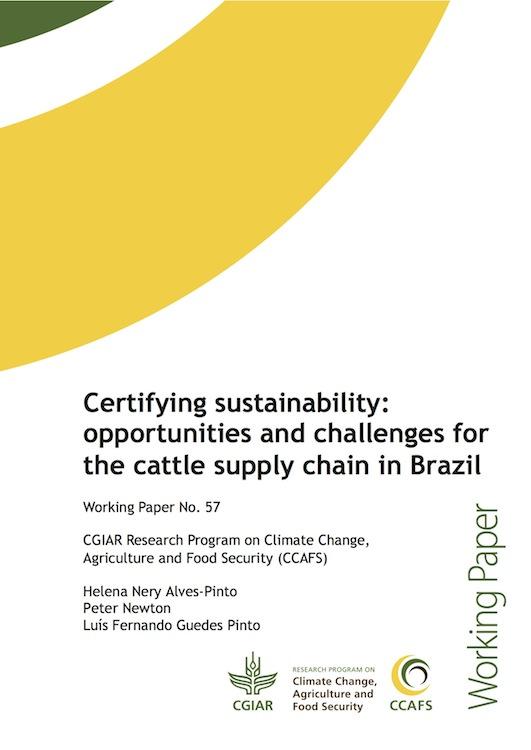 programme, Certifying sustainability: opportunities and challenges for the cattle supply chain in Brazil, highlights the complex ways in which existing policies, laws, credit schemes and the like complement or constrain the programme within Brazil.
programme, Certifying sustainability: opportunities and challenges for the cattle supply chain in Brazil, highlights the complex ways in which existing policies, laws, credit schemes and the like complement or constrain the programme within Brazil.
“We are looking at everything that can influence the uptake and expansion of the SAN certification standard,” said Helena Nery Alves-Pinto, lead author of the report. “We demonstrate the importance of strong, supporting institutions in helping to establish sustainability initiatives such as this,” she continued. Download the report
One of the biggest problems is that there is little consumer demand for certified sustainable beef in Brazil—most people are more interested in the price and quality of the meat. This means that people are not willing to pay more for SAN-certified beef, so there is less clear incentive for farmers to go to the trouble of meeting the exacting requirements for certification.
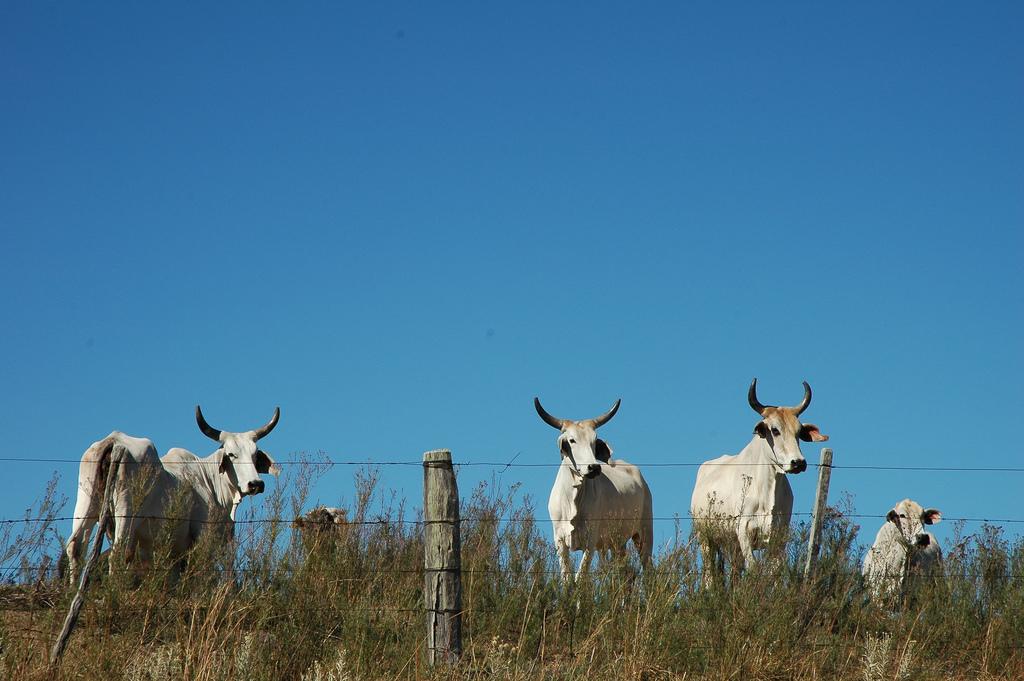
Currently there is little consumer demand for certified sustainable beef in Brazil, limiting the incentives for farmers to produce meat sustainably. Photo: V. Pillar
Competing, but less stringent standards, operated by retailers muddy the water, confusing consumers about the ‘green’ credentials of the different products. Conversely, these standards offer farmers an incentive to start on the ladder to improving the sustainability of their production systems; in time, they may adopt the SAN ‘gold standard’.
On the flip side, farmers who have made the changes needed to meet the SAN standard found they increased their production efficiency and lowered their costs, bringing them financial benefits even without a sufficiently large price premium for their product. And the improved record-keeping required for SAN certification is also likely to make it easier for farmers to get credit from banks or through schemes such as the government’s Low Carbon Agriculture Program.
“The impact of a new intervention depends on the combinations and interactions of actors and institutional context,” noted Newton, “and we have developed a framework that will help people analyse the structure and possible effects of interventions, accounting for the technical, social, economic and political environment they are working in.” This was published recently in Global Environmental Change.
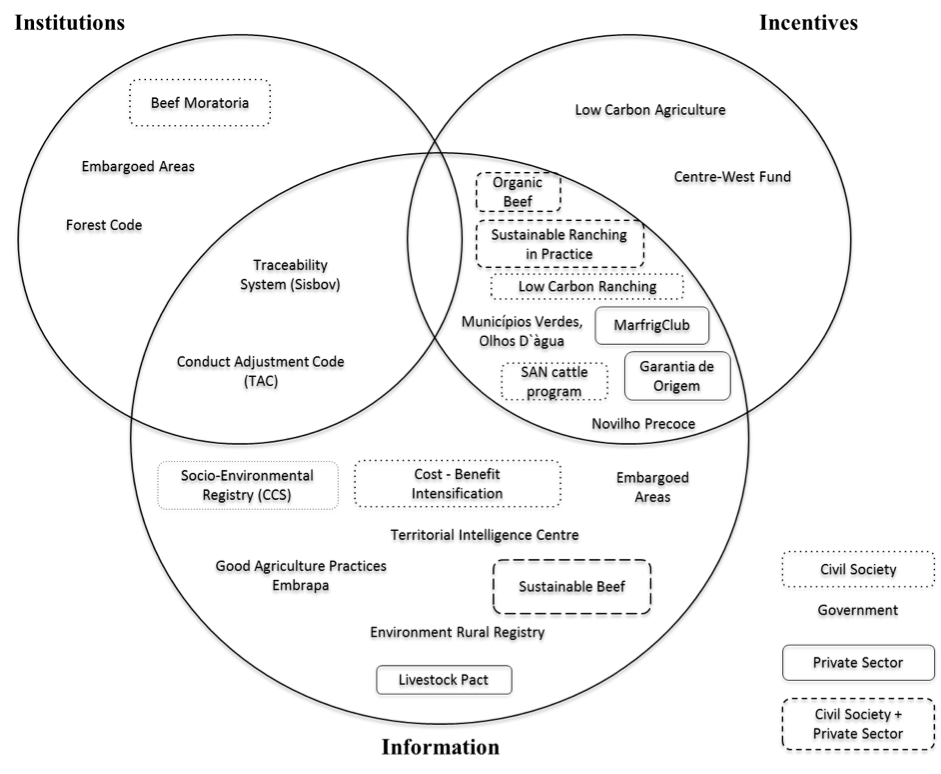
Many institutions, incentives and information and technology packages influence the sustainable beef sector in Brazil.
The framework has three key ‘lenses’: the commodity chain itself (for example, who is involved? What is their role?); the interventions (through what mechanism is change achieved?); and the implementing players (governments, the private sector or civil society [non-governmental organizations, communities and researchers]).
“We show that all possible interventions boil down to combinations of one or more of three mechanisms for change: new institutions, incentives and information and technology,” said Newton.
This framework can help in analysing the impacts of interventions that have been implemented, or to take into account the existing environment when planning interventions.
“By bringing together the experience of CCAFS and The Forests Dialogue in Brazil in one forum, we hope to openly discuss how best we can intervene in commodity agriculture value chains in Brazil, and extrapolate that to the broader context of other commodities elsewhere in the tropics,” said Newton.
A big ask, but one that the world’s forests urgently need.
A blog about this session and paper in Portuguese is available on the IMAFLORA web site.
DOWNLOAD: Certifying sustainabil ity: opportunities and challenges for the cattle supply chain in Brazil, Alves-Pinto H, Newton P, Pinto L. 2013. CCAFS Working Paper 57.
Learn more about commodity agriculture and its implications on ecosystems and sustainable development:
- Exploring sustainable palm oil production in Indonesia
- Commodity agriculture: supply chains and sustainability
Paul Neate works as a freelance science writer.
The CCAFS team is reporting live from the UNFCCC climate talks in Warsaw, 11-22 November 2013. Click to read all of our coverage. For live updates from the Climate talks in Warsaw, follow us on twitter @cgiarclimate and @bcampbell_CGIAR. Join the conversation using #GLFCOP19.


